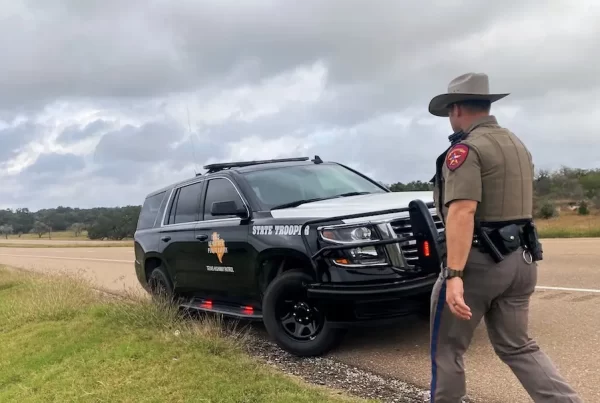Overview
The Texas juvenile justice system is responsible for adjudicating criminal cases involving pre-teen and teenage children, housing and educating juveniles who are detained for dangerous or delinquent conduct, and supervising juveniles who are on probation or community supervision.
The system consists of several parts, including county juvenile courts, county juvenile boards and probation departments, and the Texas Juvenile Justice Department (TJJD).
In Texas, a person can be charged in a juvenile court for criminal offenses committed on or after his 10th birthday, up until his 17th birthday. Once a person turns 17 in Texas, he or she is legally considered an adult, and can be charged in adult court.
Thousands of children pass through the juvenile justice courts each year. Most cases do not result in a sentence of confinement but instead an order for probation or community supervision. County juvenile probation departments oversee most sanctions that the courts impose.
In fiscal year 2020, there were a daily average of 4,816 juveniles on community supervision in Texas and 9,353 on probation supervision, according to TJJD’s 2020 annual report.
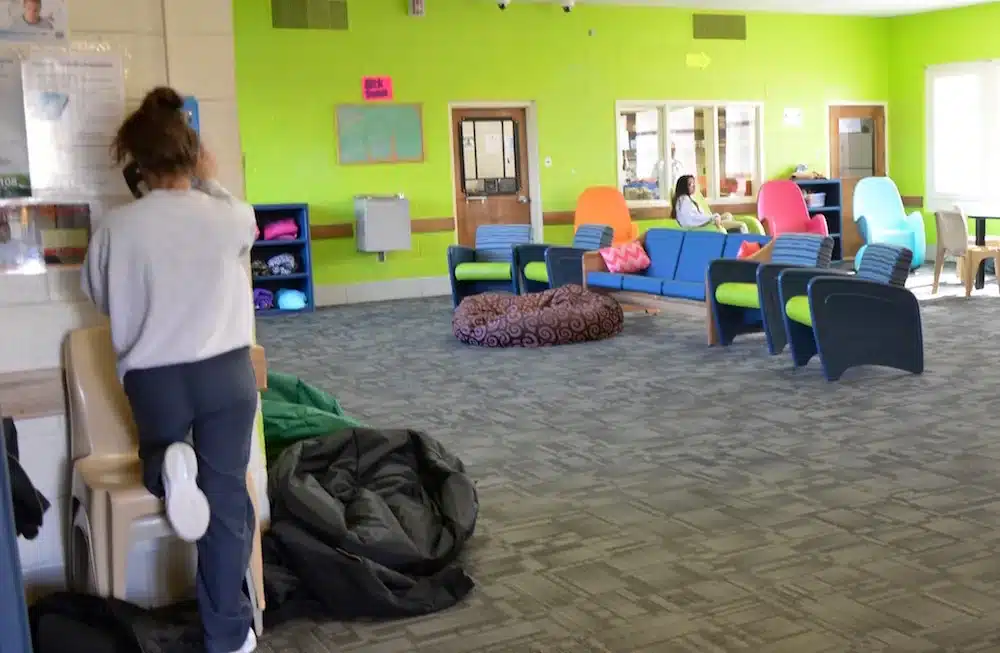
Juvenile Boards and Probation Departments
Each county in Texas has a juvenile board that is the governing body of the county’s juvenile probation department. Membership on the board typically includes all district and county court judges.
The duties of the board include employing a chief probation officer, adopting a budget for juvenile services in the county, and controlling the conditions and terms of detention and detention supervision.
Actual supervision of juveniles falls to the county’s chief probation officer or assistant officers.
Juvenile boards receive their funding from probation fees and from an annual allocation from the Texas Juvenile Justice Department.
Juvenile Courts and Judges
The juvenile board in each county is responsible for designating at least one juvenile court in the county, which must be presided over by a district judge, county court-at-law judge, or county judge.
The juvenile board may also appoint one or more “referees” to conduct juvenile hearings, including detention hearings, when a juvenile judge is unavailable. The referee must be a licensed lawyer and is authorized to conduct hearings and to make written findings and recommendations to the judge. Justice and municipal courts may not be designated as a county’s official juvenile court, but these courts handle a variety of low-level juvenile offense cases, including violations of city ordinances and fine-only misdemeanors. They may also conduct detention hearings when juvenile judges are unavailable.
Juvenile Prosecuting Attorney
The prosecution of juvenile cases falls to a designated prosecutor in each county. That person may be an assistant district attorney or an assistant county attorney. The juvenile prosecutor represents the State of Texas and is responsible for promptly reviewing the circumstances and allegations of every juvenile case that is referred to juvenile court. The juvenile prosecutor decides whether cases merit prosecution and in what manner.
Due Process in Juvenile Justice System
When a juvenile is taken into custody, he must be delivered “without unnecessary delay” to a juvenile processing office. His parent or guardian must be promptly notified that he has been taken into custody and the reason.
Within 48 hours, a judge must conduct a detention hearing to determine whether to release or detain the juvenile in a facility, pending trial. Detention decisions are at the discretion of the court, and there is no bail system in juvenile courts as there is in adult courts.
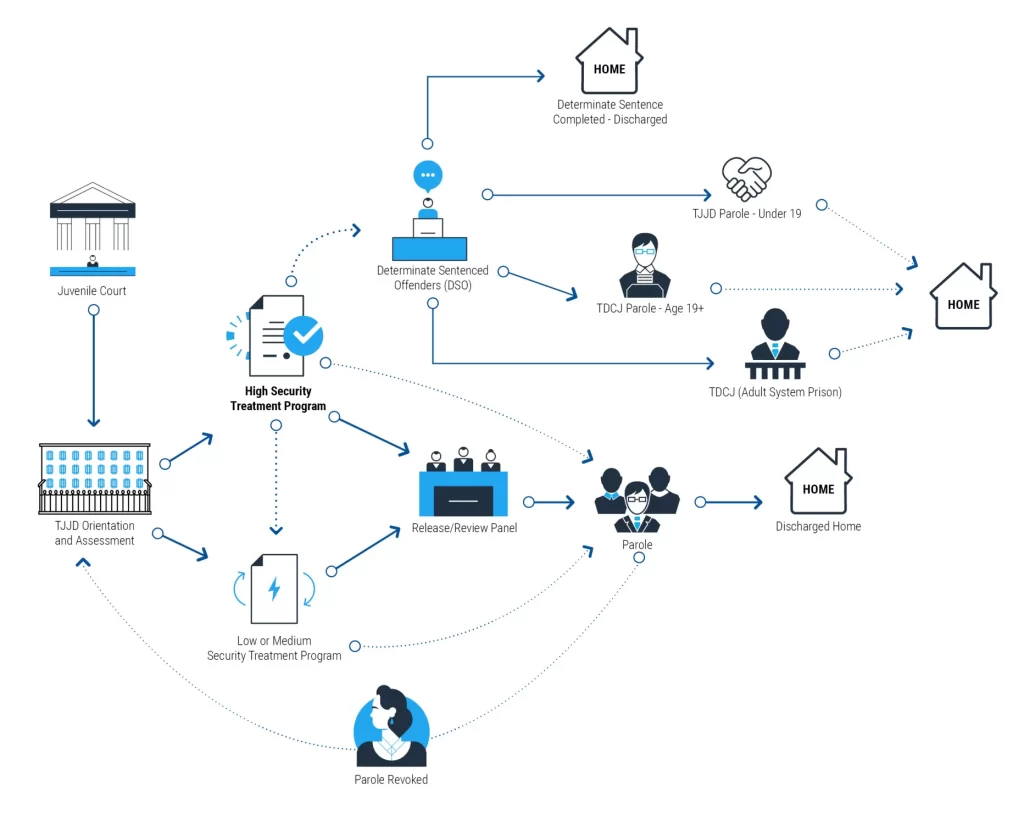
Reasonable notice of the hearing must be provided to the juvenile’s parent or guardian; however, if the parent or guardian can’t be located, the court must appoint a guardian ad litem for the hearing.
Juveniles have a right to counsel at all detention hearings. Unlike most other states, Texas also allows juveniles the option of a jury trial. After the detention hearing, the court will proceed with a trial. Unlike criminal trials of adults, juvenile trials do not result in a verdict of “guilty” or “not guilty.” Instead, the judge or jury makes a finding of whether the child “engaged in delinquent conduct” or not.
Residential Facilities
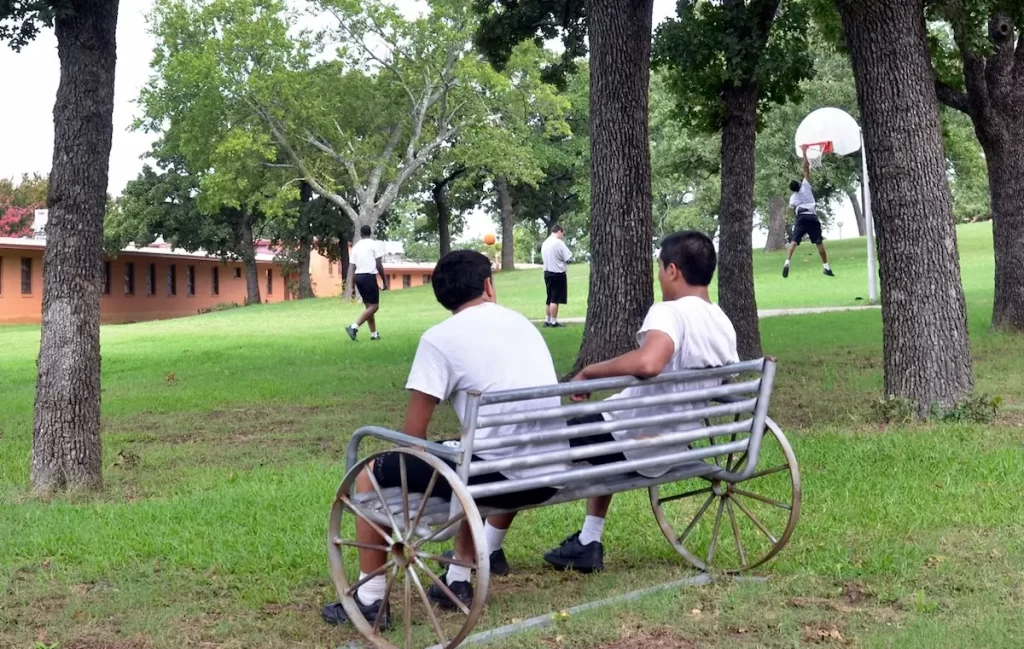
When a judge determines that a child is high-risk, a chronic offender, or in need of higher levels of care or specialized services, the judge may commit the child to a residential facility run by the Texas Juvenile Justice Department.
Some of these facilities are halfway houses with minimal security, others have medium security, and others are high-security facilities surrounded by fences with controlled entrances monitored by law enforcement officers.
TJJD provides individual counseling, group sessions, and schooling to all youth placed in residential facilities. Vocational training or work-release opportunities are also offered to some residents.
Facilities within the Texas juvenile justice system (as of 2021) include:
- Ron Jackson Juvenile Correctional Complex (Brownwood);
- Evins Regional Juvenile Center (Edinburg);
- Giddings State School (Giddings);
- Gainesville State School (Gainesville);
- McLennan County State Juvenile Correctional Facility (Mart);
- Schaeffer House (El Paso);
- Karyn’s House (Willis); and several others.
In FY 2019, the average daily population in all residential juvenile facilities in Texas was 1,620.
In addition to running these residential facilities, TJJD assists local probation departments with funding, training, and oversight.
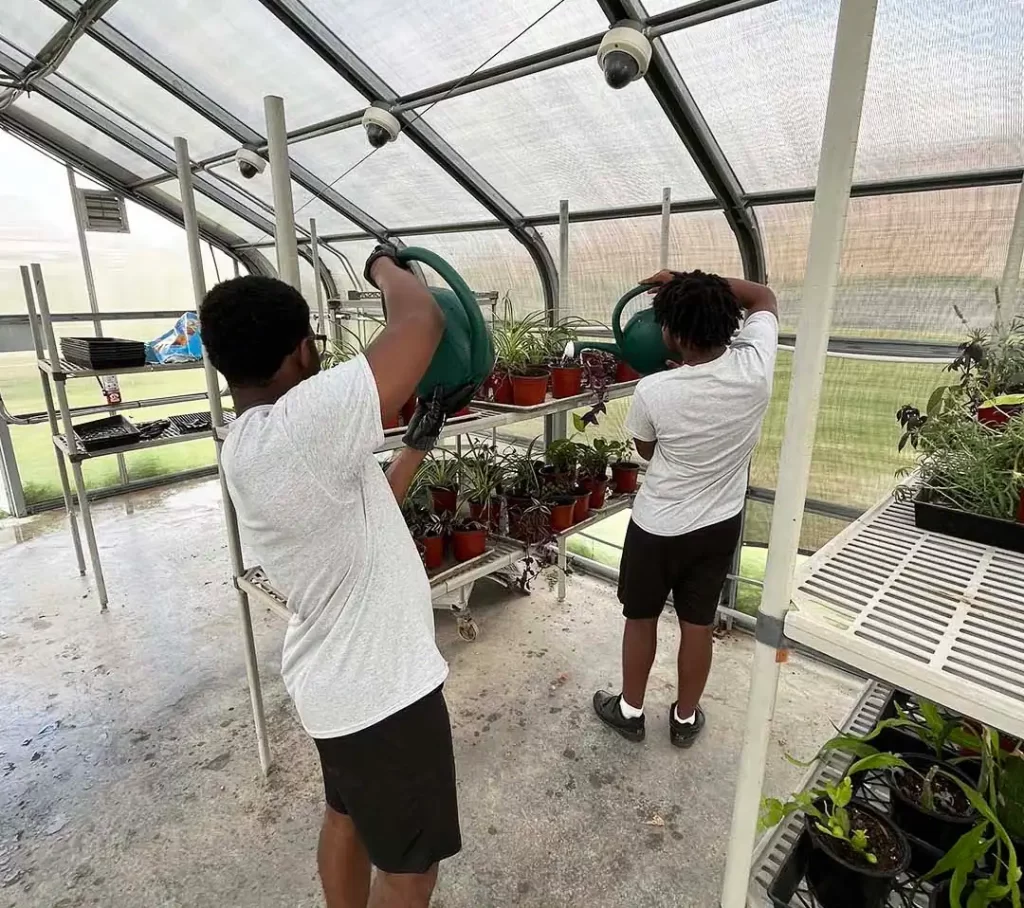
Sunset Review
The Sunset Advisory Commission reviewed the work and mandate of the Texas Juvenile Justice Department in 2023-2023. It recommended numerous changes, and scheduled the department for another review in 2026-2027.
Predecessor Agencies
The Texas Juvenile Justice Department was created in 2011, replacing two other agencies, the Texas Youth Commission and the Texas Juvenile Probation Commission. TJJD is headquartered in Austin at a rented facility at the Braker H. Complex at 11209 Metric Blvd.

